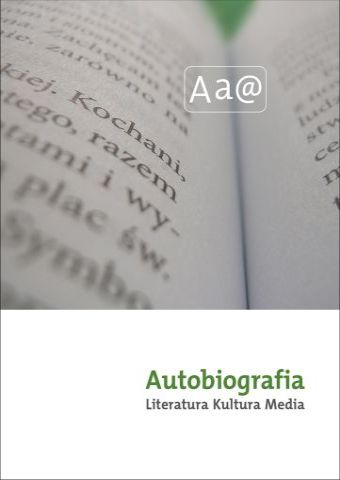






| Authors: |
Katarzyna
Szopa
Uniwersytet Śląski w Katowicach |
| Keywords: | autobiography feminist philosophy situated knowledge |
| Data publikacji całości: | 2018 |
| Page range: | 12 (25-36) |
| 1. | Anderson, Linda. Autobiography: The New Critical Idiom. London – New York: Routledge, 2011. |
| 2. | Cowley, Christopher. „What is a Philosophical Autobiography?” W: The Philosophy of Autobiography, red. Christopher Cowley. London: The University of Chicago Press, 2015. |
| 3. | Derrida, Jacques. Ostrogi. Style Nietzschego. Tłum. Bogdan Banasiak. Łódź: Wydawnictwo Officyna, 2012. |
| 4. | Foucault, Michel. „Sobąpisanie”. Tłum. Michał Paweł Markowski. W: tegoż, Powiedziane, napisane. Szaleństwo i literatura, oprac. Tadeusz Komendant. Warszawa: Wydawnictwo Aletheia, 1999. |
| 5. | Hirsh, Elizabeth, Olson Gary A., Brulotte Gaëton. „Je – Luce Irigaray: A Meeting with Luce Irigaray”. Hypatia 2 (1995): 93–114. |
| 6. | Irigaray, Luce. In the Beginning, She Was. New York: Bloomsbury, 2013. |
| 7. | Irigaray, Luce. Speculum of the Other Woman. Ithaca, New York: Cornell University Press, 1985. |
| 8. | Irigaray, Luce, Amsberg Kiki, Steenhuis Aafke. „An Interview with Luce Irigaray”. Hecate 1–2 (1983): 192–210. |
| 9. | Irigaray, Luce, Davis Creston. „Rozmowa z legendarną filozofką i aktywistką: Luce Irigaray”. Tłum. Katarzyna Szopa, Nowa Orgia Myśli. Dostęp 10.05.2018. http://nowaorgiamysli.pl/index.php/2017/11/16/rozmowa-z-legendarna-filozofka-i-aktywistka-luce-irigaray/. |
| 10. | Irigaray, Luce, Marder Michael. Through Vegetal Being: Two Philosophical Perspectives. New York: Columbia University Press, 2016. |
| 11. | Krzykawski, Michał. „J’accepte: Jacques Derrida’s Cryptic Love by Unsealed Writing”. Avant 2 (2017): 39–50. |
| 12. | Mathien, Thomas. Philosophers’ Autobiographies. W: Autobiography as Philosophy: The Philosophical Uses of Self-Presentation, red. Thomas Mathien, D. G. Wright. New York: Routledge, 2006. |
| 13. | Mathien, Thomas, Wright D.G. Introduction. W: Autobiography as Philosophy: The Philosophical Miller, Nancy K. Writing Fictions: Women’s Autobiography in France. W: tejże, Subject to Change: Reading Feminist Writing. New York: Columbia University Press, 1988. |
| 14. | Moi, Toril. Feminist Theory and Simone de Beauvoir. Oxford: Basil Blackwell, 1990. |
| 15. | Probyn, Elspeth. Sexing the Self: Gendered Positions in Cultural Studies. London, New York: Routledge 2005. |
| 16. | Whitford, Margaret. Introduction. W: The Irigaray Reader, red. M. Whitford. Cambridge: Blackwell Publishers, 1992. |